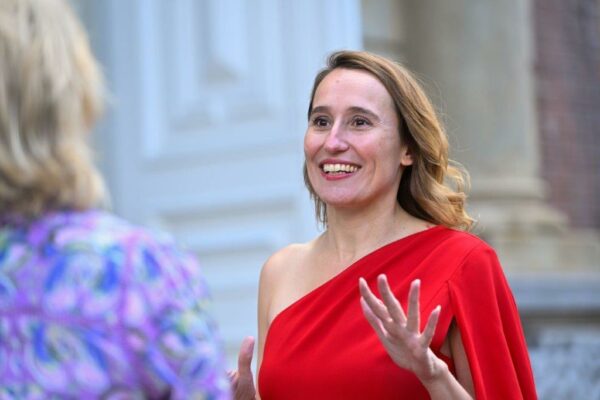Have you turned down a career opportunity, or avoided applying for a job because you were worried about your hearing loss being a barrier? Sharon, a 33-year old living in Amsterdam, is all too familiar with this experience. Now a leading expert in fraud investigation and forensic accounting, Sharon once struggled to get a job as a cleaner because of her hearing loss.
An unconscious bias in the workplace is largely to blame for that says, Sandra Ballij, social entrepreneur and CEO of Ctalents, a recruitment agency that specializes in placing people with vision impairment and hearing loss.
Sandra helped Sharon find the role in which she now thrives. But Sandra recalls many examples of candidates with hearing loss she has placed in corporate roles who have received misplaced praise from co-workers for completing basic tasks or simply turning up on time.
“But we are talking about experts – who enrich an organization!”
How Sandra built a career that helps others find theirs
Sandra’s passion for her mission-led business is born from personal experience. After being diagnosed with the Besnier Boecks disease while at university almost 20 years ago, she found herself briefly in a wheelchair as the result of an infection in the legs.
“No one talked about my future anymore – everyone was focused on the disease. I felt erased, unseen. I felt I had no future, no outlook anymore. Nobody should have this feeling. Everyone should be seen, heard and appreciated for their talents.”
After being told a corporate career was beyond her reach, she was determined to prove people wrong and, after a successful career in banking, launched Ctalents in 2014 to help others fulfill their potential. The organization has now placed more than 540 people in a wide range of roles.
“People who are different can add value because they are different. We’re taking about people who can enrich an organization. So the question is, how can we connect this power with market demand.”
Strategies for career seekers
Sandra is all about encouraging confident thinking, but she also recognizes that applying for a job with hearing loss or returning to the workplace after receiving a cochlear implant can be a challenge.
If you can relate to this, Sandra offers some tips to consider:
- It might be a good time to consider a new role or area of work. Don’t confine yourself to past roles. Play to your strengths and think laterally about your skills.
- If workplace listening fatigue is a barrier, mix up your day and work schedule. Remove your sound processors if you need to tune out background noise and give yourself a break. Find a balance between meetings and focus time.
- If you’re looking for an office job, research tools that can help you, such as live subtitling or transcription options for video calls.
- Don’t be afraid to connect with other people. Most people struggle with something – be open about it and share your struggles.
- Others will find it difficult to start a conversation about your hearing loss. Acknowledge it is different for you – and talk about it. Approaching these topics with humor can also help.
- Advocate for yourself. Be open and honest about what you need. You’ll be surprised by how others are open to new solutions.
- If it doesn’t feel right in the beginning – it’s not the right place for you.
It’s no surprise that Sandra is purpose-driven. Before Ctalents, she built a successful café business that only employed people with hearing loss. Orders could only be placed in sign language (a video in the café provided instructions).
The cafe, which now employs more than 100 people with hearing loss, came after the opening of Ctaste, a restaurant where only blind people worked, and guests had dinner in the dark. Sandra’s focus now is squarely on workplace change. Her vision for Ctalents is to place 5000 people by 2030 in at least three countries and at least one CEO. About 50% of the agency’s efforts focus on workplace education, accessibility and culture shaping. But Sandra says candidates themselves need support to overcome a lack of confidence and perceived barriers.
“Think about it, talk about it and plan it. This can also be an eye opener for a lot of other people in the office. It’s time to rethink the workplace,” she says. “And find your confidence.”
Get more tips to help you at work or in the classroom here!


